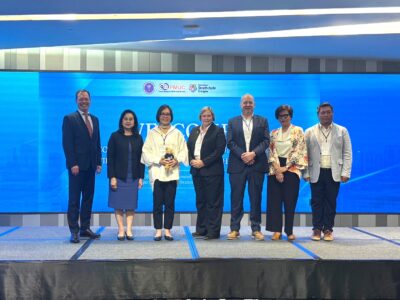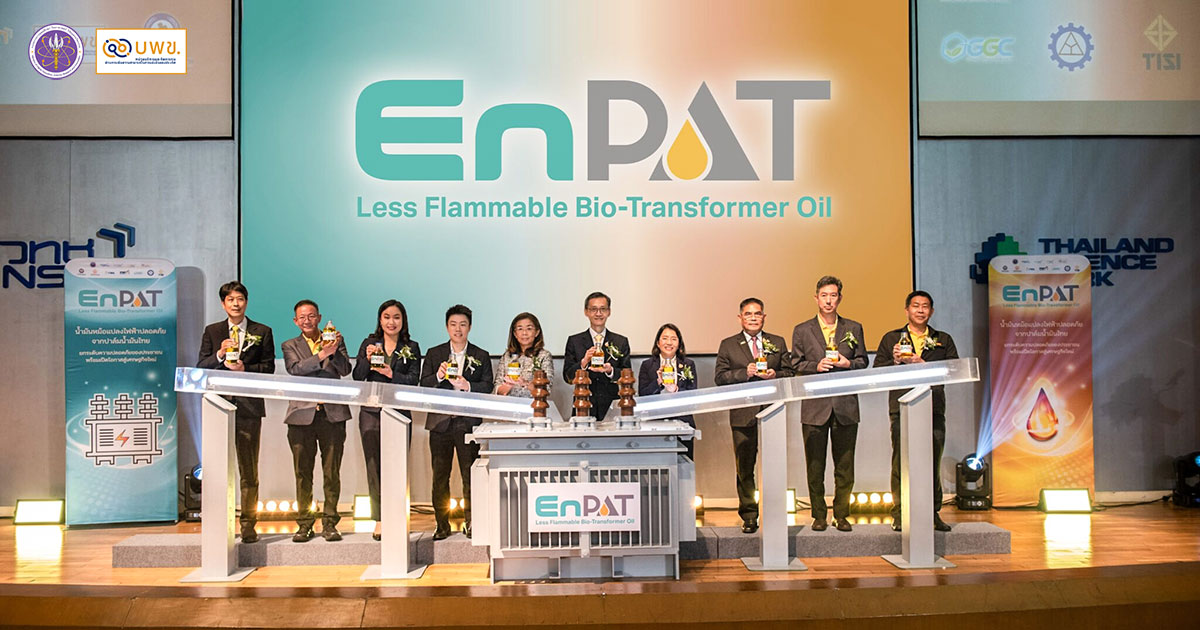
The news incident involving a “transformer explosion” is certainly something no one wants to see happen, as it represents another severe fire hazard that causes immeasurable damage to both property and lives. This issue has led to research questions for a team of Thai researchers developing “safe transformer oil from Thai palm oil” under the name “EnPAT.” This initiative not only helps prevent fire incidents caused by transformer explosions and mitigates losses for the public but also supports palm oil farmers in increasing the value of their products and advancing the country’s palm oil industry in tangible ways.
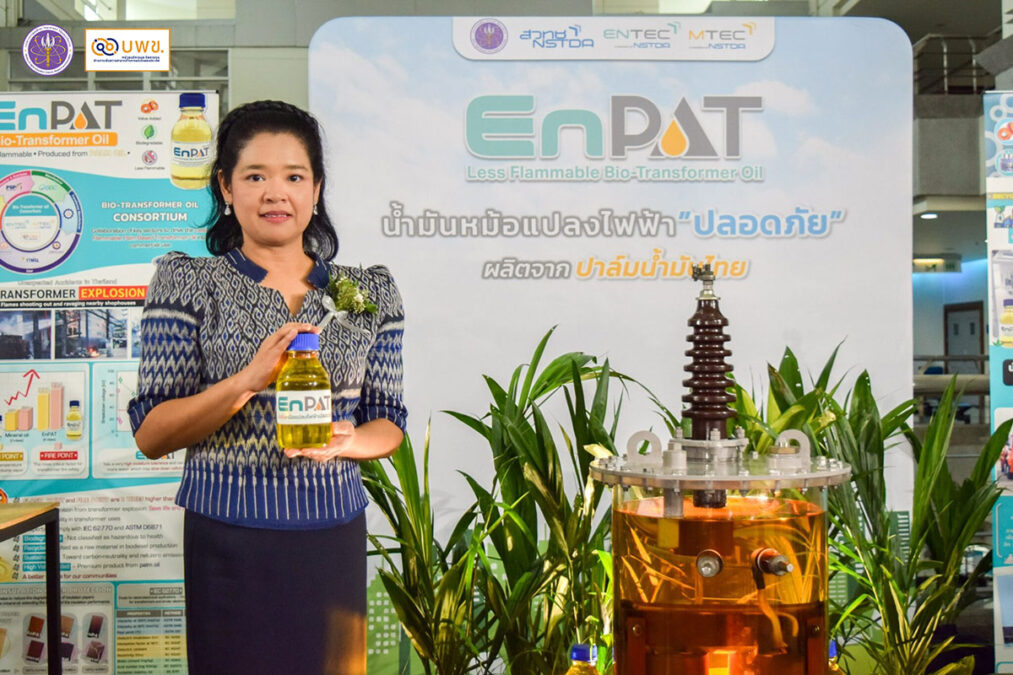
Dr. Bunyawan Yu-sook, the head of the Clean Fuel Technology and Advanced Chemistry Research Team at the National Energy Technology Center (ENTEC), National Science and Technology Development Agency (NSTDA), Ministry of Higher Education, Science, Research and Innovation, and the head of the “EnPAT” development project, provided additional preliminary information about this project:
“One of the main causes of transformer explosions is the ignition of the oil within the transformer. When the transformer explodes, the ignited oil disperses to surrounding buildings, resulting in a spreading fire that causes immeasurable damage to lives and property.”
“Moreover, this also affects public trust in agencies responsible for the electrical system. The transformer oil currently in use is mineral oil derived from petroleum, which serves as electrical insulation and helps dissipate heat in the transformer. However, a significant problem with mineral oil is its low flash point, making it easy to ignite when a transformer explosion occurs.”
“For this reason, the research team developed a safe transformer oil known as ‘EnPAT’ by enhancing the quality of palm oil to make it suitable for use in transformers, resulting in a safe transformer oil produced using Thai technology.”

Following a pilot implementation of “EnPAT” that began in 2024, transformers filled with “EnPAT” were installed in the Samet sub-district of Chonburi city on March 21, 2024, under the supervision of the Provincial Electricity Authority (PEA). Today, there was a ceremony to launch the pilot use of “EnPAT, safe transformer oil from Thai palm oil,” marked by the collaboration of nine government and private organizations that are key players in the country’s transformer oil industry. These include the research team from the National Energy Technology Center (ENTEC), NSTDA, the Program Management Unit for Competitiveness (PMUC), as well as companies such as P.S.P. Specialties Public Company Limited, Global Green Chemicals Public Company Limited, PEA, Metropolitan Electricity Authority (MEA), Electricity Generating Authority of Thailand (EGAT), Charoenchai Transformer Co., Ltd., and the Industrial Standards Institute (ISI).
The purpose of this ceremony was to announce a significant milestone demonstrating Thailand’s advancement in creating innovations that support economic growth while fostering a sustainable low-carbon society in the future. This aligns with the BCG (Bio-Circular-Green Economy) trend and responds to the elevation of the country’s palm oil industry, inspiring investment in research and development that will lead to the establishment of a high-value oleochemical industry.
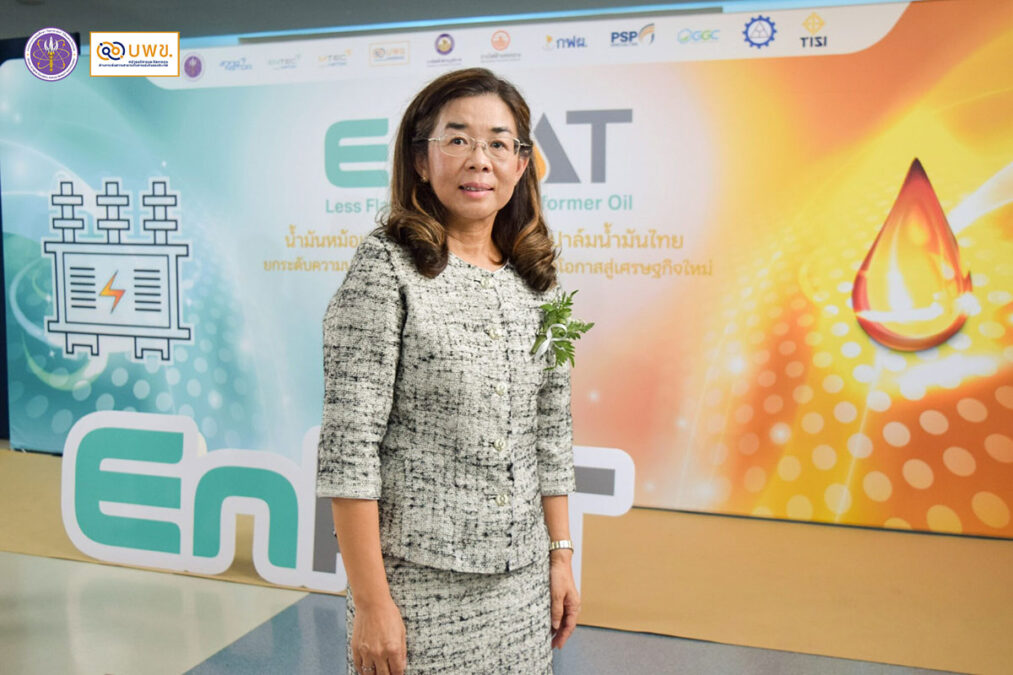
Professor Apanee Leuangnarumitchai, Chair of the Subcommittee on the Chemical Energy and Bio-Materials Program of the Program Management Unit for Competitiveness (PMUC).
“EnPAT” is one of the 13 research projects awarded the PMUC Country 1st Award, serving as proof that research can truly transform the nation.
Thanks to the contribution of “EnPAT,” a safe transformer oil made from Thai palm oil, this research project was selected as one of 13 projects receiving the PMUC Country 1st Award, the first of its kind in Thailand. This accolade recognizes transformative research from a pool of 1,600 projects funded by the NSTDA. Professor Dr. Apanee Leuangnarumitchai provided additional information regarding the PMUC’s mission and the significance of EnPAT to the country’s palm oil industry, which can further add value to the oleochemical industry:
“The EnPAT project, developing and piloting the safe transformer oil from Thai palm oil, exemplifies a successful collaboration among various sectors, with nine key organizations in both public and private sectors involved in the country’s transformer oil industry. Additionally, it has received excellent cooperation from the Samet Subdistrict Municipality in Chonburi Province, which oversees the area and works closely with the local community.”
“This research project demonstrates the power of collaboration across all sectors to drive research outcomes that can be utilized for the benefit of the nation and its people. The success of this project will elevate the country’s palm oil industry, as Thailand ranks third globally in palm oil production capacity. This capability also benefits many related industries by enhancing production efficiency, from being used as a primary raw material for various consumer goods to serving as renewable energy.”

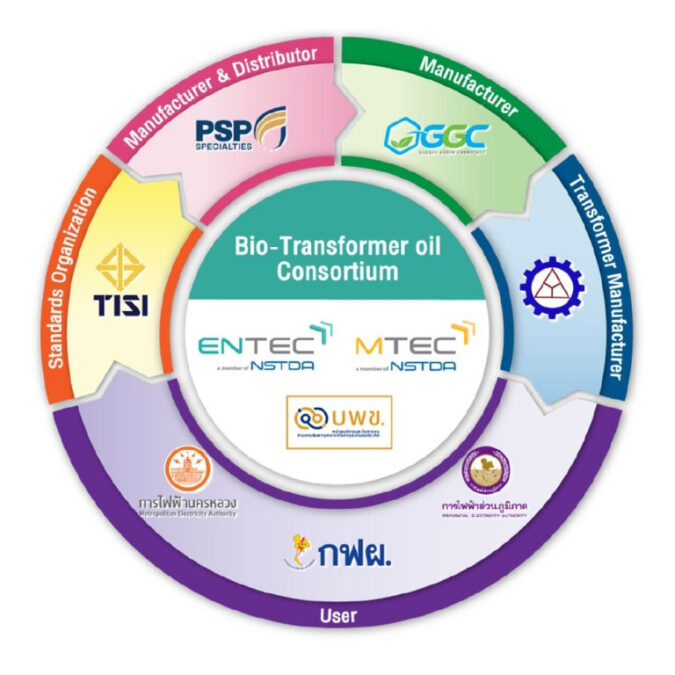
“From this project, both government and private sector organizations have agreed on the importance of developing palm oil as a key raw material for producing bio-based transformer oil, which is expected to generate an economic value of up to 4 billion baht. This will lead to investments stemming from the research and a clear advancement of Thailand’s high-value oleochemical industry.”
“Thus, the PMUC, as an agency with a primary mission to support research funding to enhance the country’s competitiveness, promotes collaboration between the public and private sectors to ensure that research can be commercially applied. We recognize the importance of providing funding support for this research project, which will drive the effective growth of the nation’s oleochemical industry through homegrown research, innovation, and technology.”
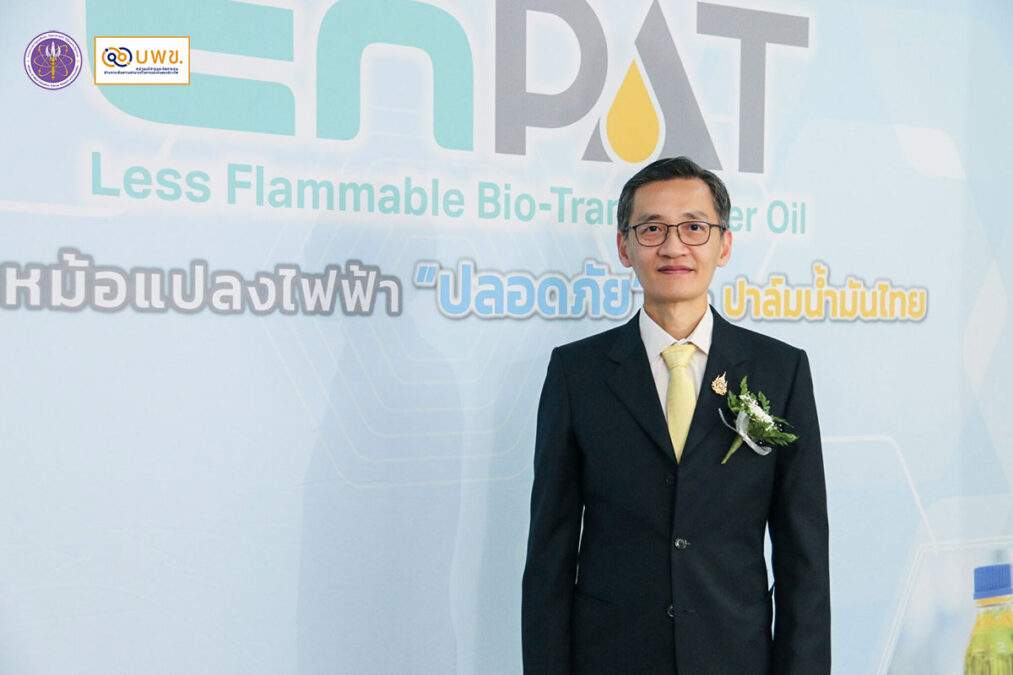
Dr. Sombun Sahasithiwat, Deputy Director of NSTDA.
Dr. Sombun Sahasithiwat further stated, “The successful installation and pilot use of transformers filled with ‘EnPAT,’ the safe transformer oil from Thai palm oil, in collaboration with the Provincial Electricity Authority (PEA) in Samet Subdistrict, Mueang District, Chonburi Province, on March 21, 2024, marks a significant step forward for Thailand in creating innovations that support economic growth while promoting a sustainable low-carbon society for the future.”
“This product not only supports the government’s BCG economic policy but also reduces dependence on imported oil and promotes the use of domestic resources such as palm oil. This aligns with the measures to promote palm oil products set forth by the National Palm Oil Policy Committee, which aims to stimulate the demand for palm oil through oleochemical products.”
“And transformer oil from bio-based sources is one of the eight target oleochemical products that will be promoted for commercial use in the country. This initiative aligns with Thailand’s policy to drive towards carbon neutrality by the year 2050 and achieve net zero greenhouse gas emissions by 2065.
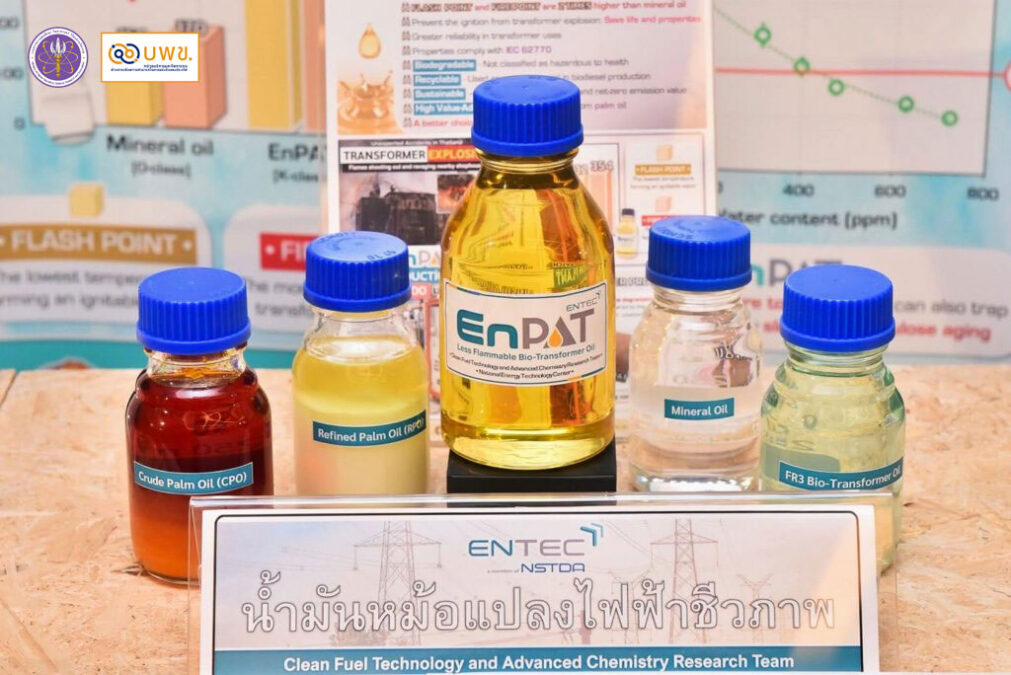
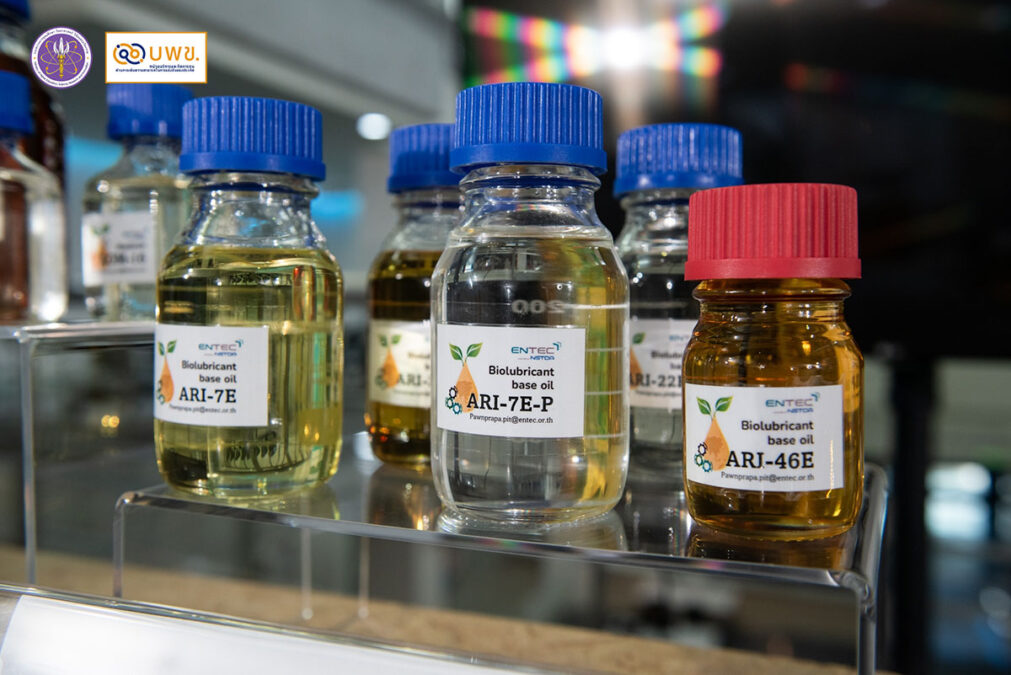
Moreover, EnPAT has the outstanding characteristic of a flash point above 300 degrees Celsius, which helps prevent fire incidents from transformer explosions, and it is biodegradable. This represents an improvement in the quality of life and safety for the public through science and technology. It also emphasizes the importance of establishing appropriate national standards for products developed from palm oil. Setting clear standards is a crucial step that will help the country advance in the oleochemical industry and promote domestic use. Clear standards will enable producers to create quality, environmentally friendly products and instill confidence in users regarding product quality.
However, in the future, the results of this pilot testing of EnPAT oil will be used to support the development of the first industrial product standards (TIS) for bio-based transformer oil in the country.”
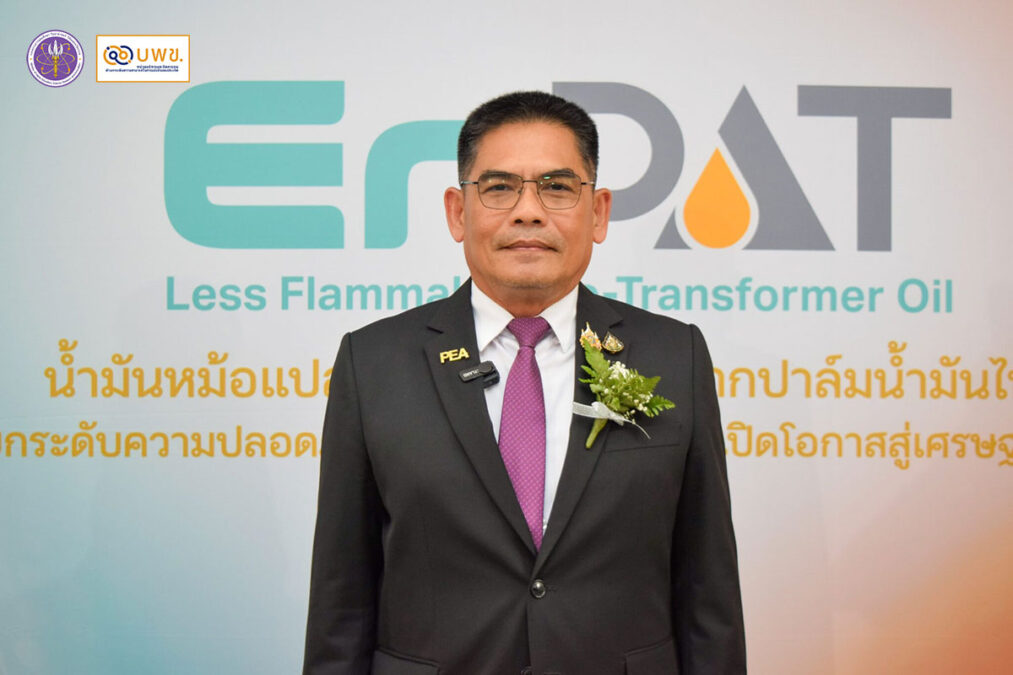
Prasong Deelee, Assistant Governor for Planning and Engineering of the Provincial Electricity Authority (PEA),
reflects the confirmed feedback from actual users regarding the quality of EnPAT and the direction of promoting the commercial use of bio-based transformer oil from Thai palm oil.
The collaboration among nine agencies, both public and private, includes the Provincial Electricity Authority (PEA) as the primary “user.” Mr. Prasong shared experiences and expressed enthusiasm for piloting the use of EnPAT safe transformer oil from Thai palm oil, stating:
“The Provincial Electricity Authority is very pleased to be the first agency to pilot the installation and use of transformers filled with ‘EnPAT’ oil to supply electricity to office buildings and residences in the area of Samet Subdistrict, Mueang District, Chonburi Province. Since the installation on March 21, 2024, this marks an important step in responding to the strategies of the Provincial Electricity Authority, which is committed to improving the quality of life of the public and being responsible towards society and the environment sustainably.”
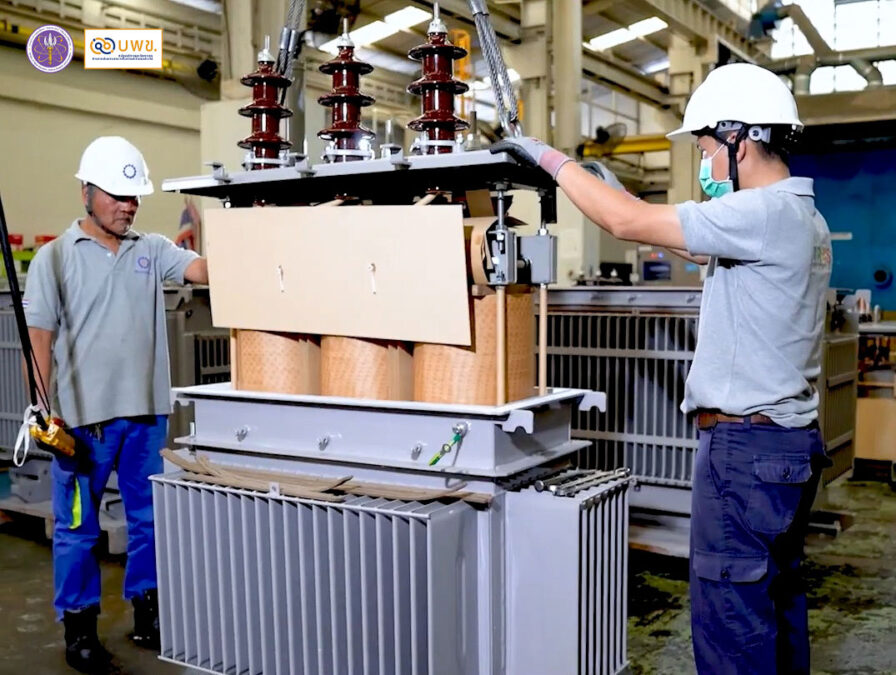
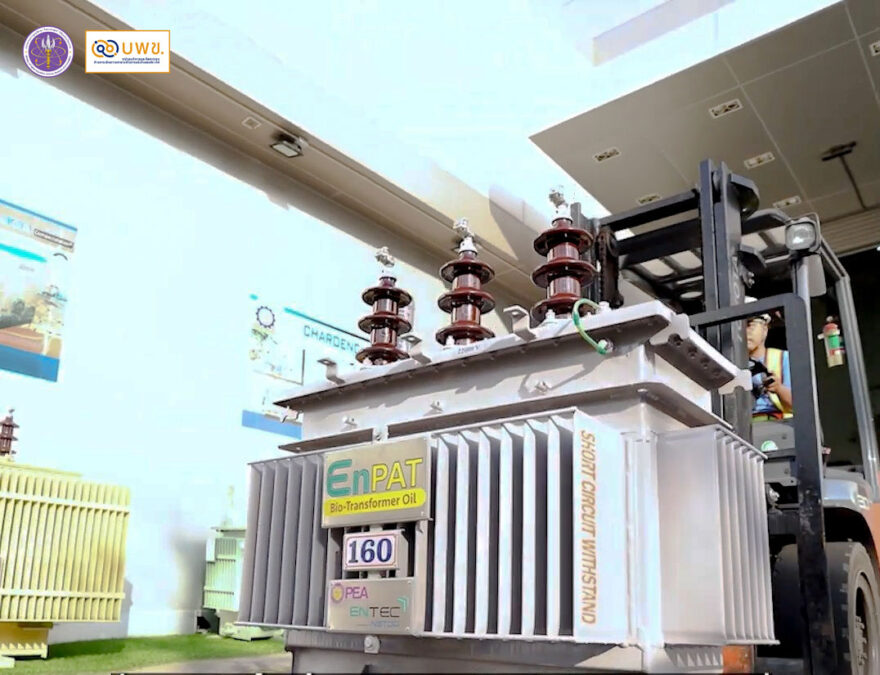
“In this pilot use of transformers filled with EnPAT oil, the Provincial Electricity Authority has undertaken to monitor and analyze the operational data of the transformers under real-use conditions to continuously assess their performance.”
“Additionally, the Provincial Electricity Authority has collaborated with research teams from the National Energy Technology Center (ENTEC) of the National Science and Technology Development Agency (NSTDA) to expand the application of EnPAT oil within the country’s electricity distribution system, with the goal of installing and using transformers filled with EnPAT in suitable areas across all regions of the country. The Provincial Electricity Authority is committed to promoting and supporting national innovations to achieve widespread commercial use and to establish a strong foundation for sustainable development in the future.”
Dr. Boonyawan, the head of the EnPAT research project, further elaborated on the direction to promote the commercial use of bio-based transformer oil from Thai palm oil.
“It must be acknowledged that due to the recent trend of transitioning from combustion vehicles to electric vehicles, the demand for palm oil in the biodiesel industry will significantly decline in the future. This will impact the Thai palm oil industry. Therefore, to promote sustainable growth in the Thai palm oil sector, it is necessary to encourage the processing of palm oil into higher-value bio-based products. This leads to the collaboration of nine agencies mentioned earlier to develop EnPAT, a transformer oil that is safe and derived from Thai palm oil.
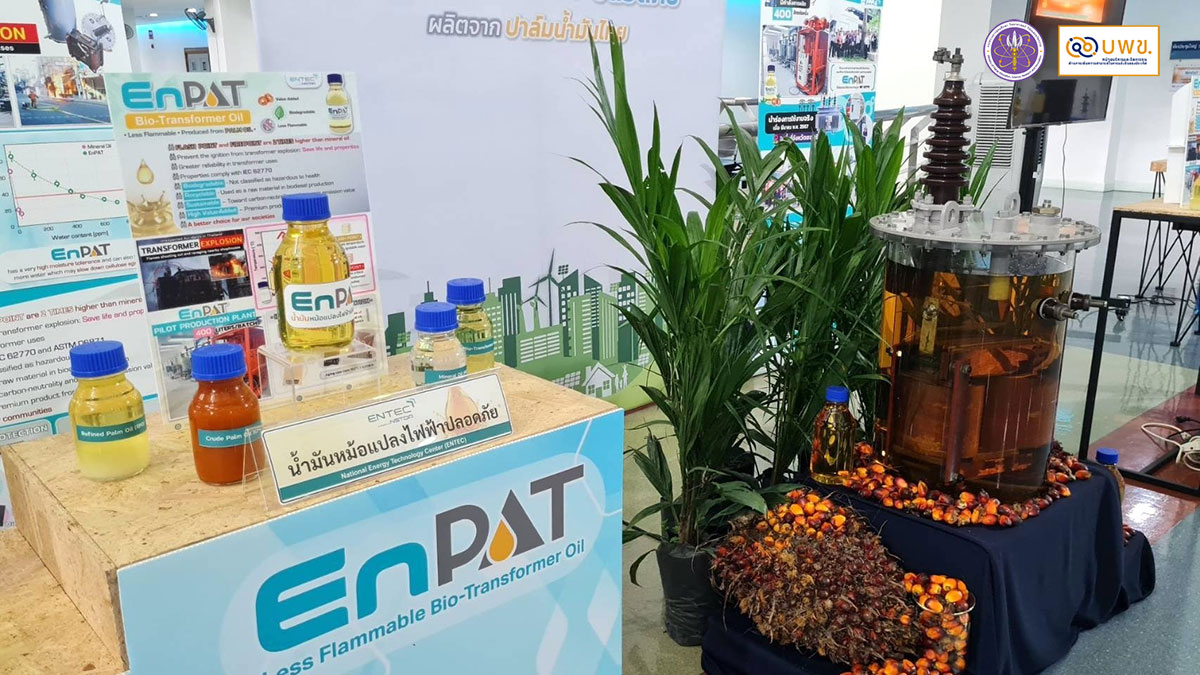
The research team has outlined a strategy to promote the commercial use of bio-based transformer oil, divided into three main work plans:
Work Plan 1 focuses on the use of EnPAT in new transformers, which includes:
1.1 Pilot implementation of EnPAT-filled transformers with the Provincial Electricity Authority (PEA).
1.2 Expanding the use of EnPAT-filled transformers in the PEA’s electricity distribution system across all regions of the country.
1.3 Utilizing EnPAT-filled transformers in the Bangkok area with support from the Metropolitan Electricity Authority. 1.4 Expanding the use of EnPAT-filled transformers into various governmental and private sector agencies participating in the project to genuinely promote usage across all sectors.
Additionally, the research team plans to invite various domestic transformer manufacturers interested in participating in the project, providing them with opportunities to use EnPAT in different types of transformers.
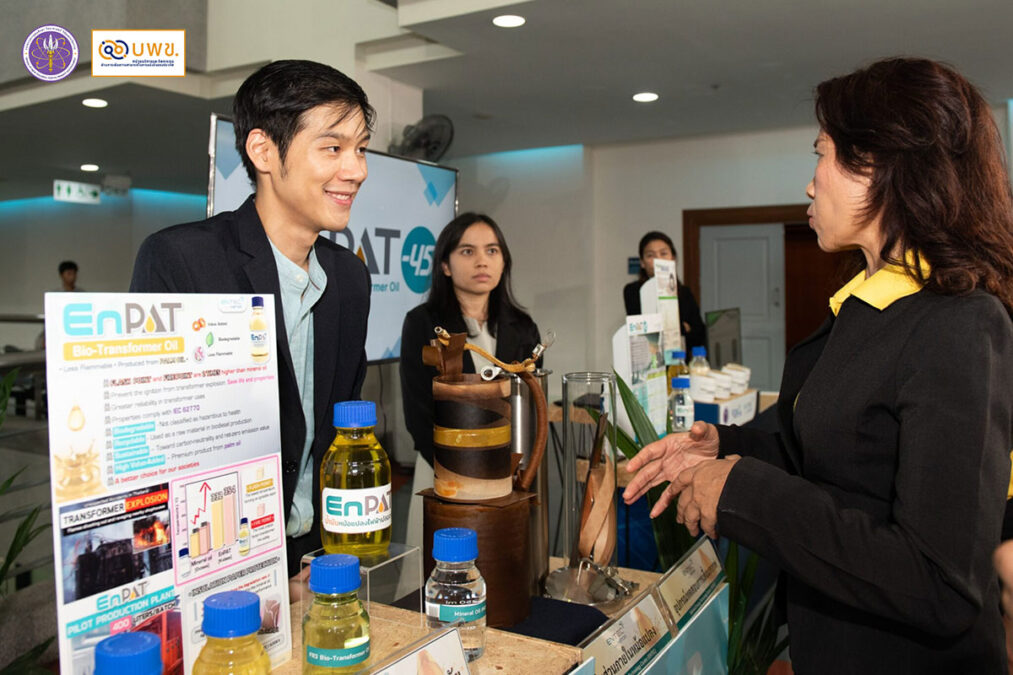
Work Plan 2 involves applying EnPAT to transformers that are already installed and in use. Most transformers of this type are filled with mineral oil, and when it comes time for maintenance, the degraded mineral oil may need to be replaced with new transformer oil. If EnPAT can be used in maintenance to replace mineral oil, it will have a broad impact, gradually facilitating the transition from mineral oil to bio-based transformer oil.
Work Plan 3 aims to push for the establishment of the first national industrial product standard (TIS) for bio-based transformer oil in the country.”




